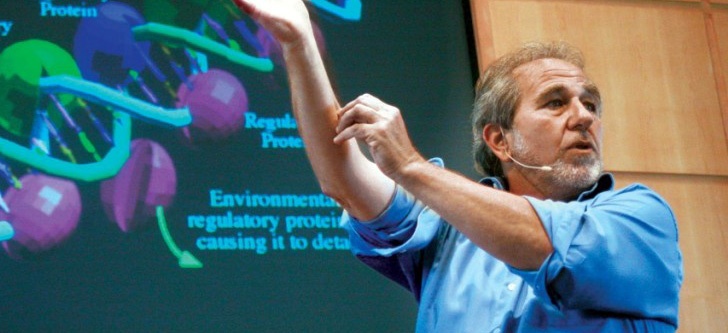
"That's just the way it is - it's my genes - I can't do anything about it."
Many people believe they are who they are, and that they have limited means to change their health or life direction. "It is what it is," they say, "because of my genetic makeup".
Well, maybe not.
Biology of Belief Summary
According to Dr. Bruce Lipton, medical school professor and research scientist - this notion of genetic or DNA "determination" - is untrue.
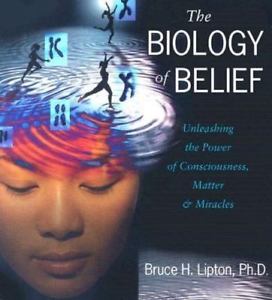 In his book The Biology of Belief: Unleashing the Power of Consciousness, Matter & Miracles, Lipton explores the biochemical effects of the brain’s functioning.
In his book The Biology of Belief: Unleashing the Power of Consciousness, Matter & Miracles, Lipton explores the biochemical effects of the brain’s functioning.
The implications of this research radically change our understanding of life.
Genes and DNA do not control our biology. Instead, DNA is controlled by signals from outside the cell, including the energetic messages emanating from our positive and negative thoughts.
Lipton shows how that our bodies can change as we change our thoughts. We have the power to alter our health and well-being for the better!
About Dr. Bruce Lipton
Dr. Bruce Lipton is a stem-cell biologist, best-selling author, recipient of the 2009 Goi Peace Award, and an internationally recognized leader bridging science and spirit. Dr. Lipton began his scientific career as a biologist, receiving his Ph.D. from the University of Virginia before joining the University of Wisconsin’s School of Medicine in 1973. Dr. Lipton’s research on muscular dystrophy, studies employing cloned human stem cells, focused upon the molecular mechanisms controlling cell behavior.
His research at Stanford University’s School of Medicine revealed that the environment (operating though the membrane) controlled the behavior and physiology of the cell, turning genes on and off. His discoveries - which ran counter to the established scientific view that life is controlled by the genes - presaged one of today’s most important fields of study, the science of epigenetics.
In the first part of our interview, Dr. Lipton spoke on his groundbreaking work in The Biology of Belief; specifically, we covered the following topics:
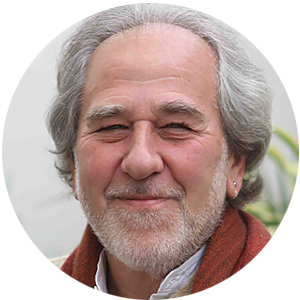 Why you’re not a victim of your genetics, but rather, a powerful creator of your internal environment
Why you’re not a victim of your genetics, but rather, a powerful creator of your internal environment- How the thoughts you think affect your physical body and emotional life
- The negative impact that chronic fear has on your system, and the positive power of love
- How to heal and prevent disease by changing your thoughts and releasing limiting beliefs
- The crucial importance of self-forgiveness, and how to offer it to yourself
- What it means to take personal responsibility for your health and healing
Video Interview with Dr. Bruce Lipton
Edited Transcript of The Biology of Belief: An Interview with Dr. Bruce Lipton
Dr. Lipton: I am so happy to be here with you and your audience, because this is a great time of awakening of who we really are. We've been sort of mis-programmed to believe that we're frail vulnerable creatures at the whim of everything outside of us.
And I'm excited because I believed that originally, but the research reveals that we are powerful creators and we can create and we can change our creation and that's what's so important.
Caroline McGraw: The logical place to start is the epiphany that you described in the prologue. It's this idea that cells are primarily controlled by their physical and energetic environments, with a relatively small contribution from their genes.
As you said, this is a very empowering concept and has so many ramifications. Can you talk about some of the implications of this power that we have?
Dr. Lipton: While I was doing this strange research that changed my whole life, I was also teaching in the medical school.
I was teaching medical students the concept what we refer to as genetic determinism. Genetic determinism is a very simple belief it says that the genes determine and control the outcome of your life.
So basically at the moment of conception when the genes are joined from mother and father, this is setting a blueprint for your future, that's the belief system. So whatever genes you have you're going to express this characteristic, and it's not you that's involved, it's the genes turning on and off controlling who you are.
So that belief is you are pre-programmed with your genetics. And this is the belief system that really carries so much fear for people because they look in their own family history and go, "Oh my God there's cancer, Alzheimer's, diabetes, cardiovascular disease.”
They go, "Oh my God my family has suffered from this and I am a recipient of their genes and now I live in fear that my life one day the genes are just going to take over and then I'm finished."
It doesn't bode well for a future when you see that as your vision on the future, "Oh my God I can get cancer," this is really scary.
So this is the belief that the conventional public has been programmed with. A belief that genes turn on and off and in the process control your life and your characteristics.
The Failure of Genetic Determinism
While I was teaching in the medical school I was doing research on stem cells - and this is back 1967 so the most of people probably listening weren't even born - but the simple reality was I was working on stem cells which are embryonic cells, and cloning them. And cloning a stem cell means you just take one stem cell put in a Petri dish all by itself and it divides every 10 hours. So first there's one cell, then two, and then four, eight, and doubling, and doubling. After a week I have 30,000 cells in the Petri dish.
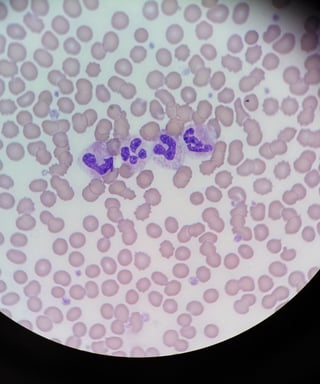 But what's really important about this is that all the cells came from one parent, so basically I have 30,000 genetically identical twins so to speak, they are all genetically identical cells.
But what's really important about this is that all the cells came from one parent, so basically I have 30,000 genetically identical twins so to speak, they are all genetically identical cells.
But the research lead me to split the group of cells into three different Petri dishes, so I had three different dishes but genetically identical cells in all three dishes. Then we grow cells in a tissue culture using what is called culture medium, that's the environment.
So cells are like fish; you have to make an aquarium more or less and you put them in this aquarium and the solution is called culture medium.
And I go well, what is culture medium?
Well culture medium is the equivalent of blood. So if I'm going to grow human cells I look at what is found in human blood, and then synthesize my synthetic version.
I create culture medium based on the components of human blood. If I'm growing mouse cells of course I then look at the composition of mouse blood and then try to make culture medium based on that. Since I'm creating a culture medium and mixing all the chemicals and making culture medium, I can also vary the concentration of different elements in that culture medium as I assemble it.
Let's go back, I have three dishes with genetically identical cells, and I create three different versions of culture medium slightly changing the chemistry in each dish.
So I have three dishes each with their own environment, three different environments, but genetically identical cells.
In one dish the cells form muscle, in the second dish the cells in that different environment form bone, in a third dish where you have that different environment, the cells form fat cells.
Now you're left with a very important question, they had all these different fates; muscle, bone, fat, what controls the fate of the cells?
Well you start with the fact you say,"Wait, they were all genetically identical, so you would presume they would all have the identical fate,"but each fate was then based on the environment in which the cells were found.
The laboratory research says genes don't control anything. The environment controls the genes.
This was profound because it said the environment was eliciting the response of the cells, not the cells just generating a response.
The nuclei with the genes, the genes weren't just turning on and off, the genes were responding to an environment.
And you go,"So why is that important?"
Here's what's important: I'm teaching in a classroom that genes are controlling everything - genetic determinism -and in the laboratory I'm finding that genes don't control anything. The environment controls the genes.
Whoa.
Download Dual Diagnosis Free EBook
Biology as a Complement to the Mind
The humorous side of this is that when we look in the mirror and there's Caroline, a beautiful woman looking back and she says,"Yes I am a single entity, I am a human being, I am a one organism."
I go, "That's an illusion."
Because were made out of 50 trillion cells, the cells are the living entity. The body by definition is a community of 50 trillion cells, so it's not one thing. I got 50 trillion cells in here.
"I have 50 trillion cells in here."
Well, the significance is that my body, your body is essentially a skin-covered Petri dish, for inside you have 50 trillion cells.
And now here's what's important.
In regard to the fate of the cells: it doesn't make a difference that the cells in a plastic dish or a skin dish, the cell is controlled by the environment … and the original culture medium is blood.
So in your skin-covered Petri dish you have 50 trillion cells, you have blood which is the culture medium, and what it reveals is that the environment is influencing the blood, which in turn controls genetics.
Then you go, "Okay wait, what does that mean?"
We're the ones that respond to the environment.
We're the ones who are controlling the composition of our culture medium our blood through our consciousness.
And so why is this important?
- Well the first thing: I'm not a victim of genes turning on and off, if I'm a victim of anything it's a victim of the environment that I'm in, or my perspective or perception of that environment.
Wait, how does perspective and perception come into it?
- One more step - the human blood is the original culture medium.
Then I say - well blood has a chemical composition.
So the main question is then, who's the chemist?
Who in my body is making chemistry, which is going to be the culture medium, which is going to control my genetics?
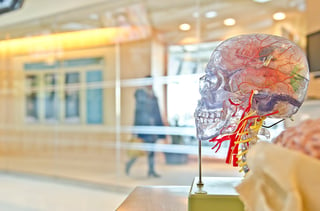
The brain is the chemist, that's the one that determines the chemistry.
One last question, so what chemicals should the brain put into the blood?
It's based on the picture in the mind.
The brain translates the picture into chemistry, and the chemistry goes into the body so that our body becomes a compliment to the picture.
It's sort of like paint-by-numbers in reverse.
In paint-by-numbers, remember you get a picture all outlined with numbers … you fill in the colors and then you get the picture.
Now reverse that.
The mind starts with a picture, the brain breaks it down into numbers, then the numbers are not paint but neurochemicals, hormones, growth factors, emotional chemicals.
So the brain looks at the picture, translates it into numbers, chemistry, and then releases that paint into the culture medium. Then the culture medium goes to the cells and creates the complement of the picture.
Your biology as a complement to your mind. Simple.
The Power of Consciousness
Let's just resolve it because this is the most profound important point.
Now let's say I'm sitting here eyes closed. I open up my eyes I see a beautiful woman and I say, "Wow, Caroline, she's so beautiful and I love that woman."
What is that happening? Well, look picture of Caroline, the understanding of love is a mental image.
What does the brain do?
It translates that into chemistry that complements the picture.
What kind of chemistry?
It's like well the picture of love releases dopamine into your brain and system which is pleasure, so that's why when you're in love it's like, "I feel so good."
That's the chemistry that came from love.
What else?
Oxytocin comes from picture of love.
What's that?
Bonding, that means I want to bond to who's giving me that love so the chemistry is making me bond.
And what else?
Vasopressin. This is a chemical that makes us more attractive.
Why should I have that? Because I want to keep my partner, my mate, I want to keep them present so if I'm more attractive they'll stay present more.
So that's a chemical that does that, and then more importantly the growth hormone. Growth hormone is released when you're in love.
So brain sees love in the picture and then says okay, dopamine pleasure, oxytocin bonding, vasopressin ... let's get the cells healthy.
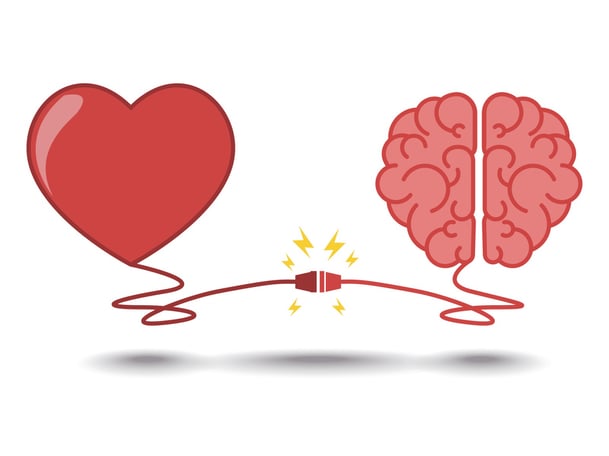
And growth hormone, as the name says, enhances your growth and vitality. When those chemicals are part of your culture medium, blood, those chemicals enhance the vitality of the cells. That's why when people fall in love somebody goes, "Oh look how they glow they're so in love."
It's like the glow is the chemistry of the blood, the culture medium giving full vitality to the cells.
The Flip Side of Love: Fear
Wait a minute, the same mind that was just focusing on love turns around sees something that scares the hell out of them. The chemistry of love is not coming out right now. A picture of fear releases a completely different chemistry.
Fear releases stress hormones and inflammatory agents.
Well why don't we shut down the growth of the system? Growth takes energy, running away from a saber-toothed tiger takes energy.
How much energy can you get together here to run away from that thing that scares you?
As much energy as I can.
How can you get it?
Shut down everything that is using energy that I don't need right now. I don't need to grow, I'm running from a saber-toothed tiger, I don't need my immune system. Because the immune system uses a lot of energy.
So when the immune system is really working and you use so much energy, it can weaken you.
Well if you're being chased by a saber-toothed tiger, is this a good time for the immune system? Of course not. So stress hormones in the vision of fear shut down the immune system to save energy, they shut down growth to save energy.
So what's the consequence?
If you sustain fear you're going to kill the system, and fear was never designed to be every day 24/7.
Fear in the original period was however many minutes it took to run away from a saber-toothed tiger. If you escape the saber-toothed tiger, no more fear.
So fear would be only used for a little piece of time, shut down everything for a short period of time while I run, once I'm safe everything comes back and I'm back in health again.
The Power of Consciousness to Shape Genetics
Today that fear for most people is now 24/7/365
The fear of:
- I'm not going to keep my job,
- I'm not going to be healthy,
- I'm not going to have insurance,
- Will I have food,
- What's going on in the world?
- etc..
Humans were never designed to be in fear that long because fear shuts down those vital functions. It was only meant to escape.
But if you stay in fear then you are creating blood culture medium that is loaded with chemicals that shut down the mechanism, and will ultimately cause disease.
What is the conclusion of all this stuff?
The answer is very simple:
- We are skin-covered Petri dishes.
- Our cells are fed culture medium, which is blood,
- the chemistry of the culture medium determines the fate of the cell ->healthy, sick, dead
- It's the chemistry that determines, that not the genes.
Why is it relevant?
Because I'm the one who can change my chemistry based on what I'm thinking, what I'm doing, where I'm living. Yeah, I live in an environment, and I can change that environment.
I can change my thought of fear, and all of a sudden you start to realize that I am not a victim of circumstances out of my control.
Because my consciousness, my mind and my nervous system is shaping my genetics.
What does that mean?
Look, you can come with the most perfectly healthy set of genes possible, but if you live in a world of chronic fear and stress, you can generate every disease on this planet.
You can generate cancer.
Cancer is not genetic, cancer is actually a symptom.
Everyone thinks that cancer is a problem, but no, the cancer is waking you up and saying, "You're not living in harmony with your life and the cells are revealing this wound so to speak."
Well I'm just going to clear out the cancer cells.
But that wasn't the problem. The cancer was reflecting another problem.
So when we start blaming our body, "Oh I have this illness and I have this illness, and oh my cells are stupid. My cells are genetically inferior," or whatever you want to say. "I am just a victim of biology."
That is so far from the truth it's unbelievable.
We've had research show that only 1% of disease is connected to genes.
If less than 1% of disease is connected to genes, we have very big question to ask: "Well where the heck is the rest of the disease coming from?"
Now we know it's how we deal with the world around us.
Why is that relevant? Because we can change.
"Oh my God I'm the one that created the illness and yet I'm also the one that can heal the illness."
We were programmed on, "I'm not responsible, my genes did that," and it's like you get a pass. "I have no responsibility,"
Really, it's like no, 99 times out of 100, you are responsible.
Shame and Guilt in Addiction Recovery
When people start to hear that they're responsible for their own health and then review their life, they go, "I can't own it; I can’t be responsible ... I feel so bad about that, I can't own that."
Because then the words like shame, victim, blame, all these words start showing up.

The Most Important Limiting Belief
I want to end this right now because this is the most important limiting belief is feeling shame and guilt about what happened.
Look the words blame, victim, shame, guilt, they're all connected with one very important fact and that is, a person knows there's a right way to do something and in spite of knowing that, they choose not to do that.
Then they're guilty, then they can be blamed, then they can have shame what they knew there was a right way and then decided not to do it, that's their choice.
But - if you have no awareness about any of your involvement, how can you be blamed for it?
For example, I drive a standard shift car. I might say to a friend, "take my car and go to town get some something and come on back."
Then you get in the car and you go, "Bruce I don't know how to drive standard shift." I say, "Here, just put your foot on the clutch, push and go," and you go down the street bucking the car.
Then you call me from town you go, "Geez Bruce I'm so sorry the car is broken, the mechanic says the clutch is broken."
Does it really make sense for me to say, "Well you stupid idiot, you ruined my car"?
Of course not. I can't say that, I was the one that said take the damn car. I never showed you how to drive the car, and if I never showed you how to drive the car, then you are not responsible because I said take the car.
And you can't go, "Oh my God I'm so guilty I should be so ashamed of ruining Bruce's car," you didn't know how to drive the car, you said you didn't know how to drive the car, and yet I said go do it.
I'm the one that's got the problem, you just got caught in the middle of it, and I need people understand out there.
If we had no awareness that we control our biology and we have no idea of how that even happens how can you be responsible for the past? You can't.
Spirituality in Recovery
I wasn't raised in the Christian religion and am not religious; I'm spiritual but not religious. But there was this one quote that always sticks in my mind, the quote of Jesus in the last moment of his life and the quote was, "Father forgive them they know not what they do."
This is like - take this home and take it personal - if you did not know how to do this you know not what you did, and you cannot be blamed. Forgive them, forgive yourself, you didn't know what to do.
"Father forgive them, they know not what they do." —Jesus
That's history, because starting at this moment you're going to become aware that you are creating this. And with that knowledge then you are given responsibility, if I know how works and I should be responsible for running it appropriately, to have health and happiness my life.
Once you become aware then you are personally responsible for your life, before you're aware how can I say, "Oh you got cancer well you're the stupid idiot."
You had no awareness, how can you get blamed for that?
Personal Responsibility in Recovery
So let go of the past, "Father forgive them they know not what they do," forgive me, I knew not what I did.
But now that I do know now I'm responsible.
Because when you take responsibility then you are powerful, if you deny responsibility, I'm giving up my power let somebody else take care of it.
It's us, we are creators, we've always been told we are creators, that's always been part of the story except we didn't ever believe it because we are, "Oh genes made me do this, genes caused that."
No, it's the wake-up call. When you know how it works, then the emphasis is...
- "I want you to have a better life,
- I want to have a happy, healthy ...
What is a happy, healthy life?
What was it like the first time you ever fell in love?
Your life could suck every day until you met that one person. Every day you’re like, "I hate my life," and then you meet this one person and 24 hours later it's like, “God, life is beautiful, it's like heaven, I love my life, oh look I'm so in love and I'm healthy, and I'm happy.”
What was that all about?
The answer is: we created happy, we created honeymoon.
We created happy, we created honeymoon.
And we also created the crap that led to the honeymoon, it's just that we changed our mind, and all of a sudden love became the emphasis of what we were all about.
And once love was the presiding force over my life, all of a sudden guess what?
I was happy, I was healthy, I was full of joy, everything.
Well, you were the one that created that.
If you understand what love is all about, then you're going to understand.
Yes you can have a honeymoon every day.
You know most people's honeymoon ends after short period of time, because we still haven't caught on.
Epigenetics
Dr. Lipton: So I'll just finish this and then it opens up.
Because what we’re really saying is my mind is creating my life experiences, that's actually true.
That's quantum physics and new biology called epigenetics, both of those say exactly the same thing.
How come I was creating crap and I didn't know it, and then all of a sudden I created love and I didn't know that either?
On a day by day basis we are operating from subconscious programs, and the first word that's important is subconscious.
That means below consciousness, my behavior is not operating from my thinking.
It's operating from a recording.
Where did you get the recording?
The primary recordings came from your mother, your father, and your family in the first seven years of your life, that's where we learn the rules of how to manage our lives.
How to be a member of the family, how to be a member of the community, what are the rules and how do you behave?
It's during these first seven years you acquire these behavior characteristics and how you respond to life by observing other people and copying theirs. Learn more on psychosocial development in early childhood.
The First Seven Years in Psychosocial Development
During those first seven years our mind is in record mode, and we watch our mother, father and siblings and community, we observe how they do things, and that becomes our subconscious program.
Are we got programmed?
You can say that. We all got programmed ... that's the story of the Matrix. Yes.
The Matrix is not science fiction, the Matrix is documentary.
There is not one person on this planet that did not get programmed in the first seven years because that's how the brain operates in the first seven years.
That's because you need to learn thousands of facts and behaviors as an infant.
I can't say to a three-year-old, "Well here's a book, read this book and then you'll be a member of the family."
No.
Nature creates the first seven years as downloading by observing, and then that becomes subconscious.
The other mind, the one that's connected to us personally, that other mind is our spirit, that other mind that makes us unique is called the conscious mind.
What's the difference?
Subconscious is just programmed, push the button, play the program, just play it. It's not bad people think subconscious is evil, I don't know ... wait a minute, you learned how to walk before you were two, you're still walking? Yeah I'm 70 something, I'm still walking. From what program? The one I got before I was two.
The subconscious isn't bad, but you can get some bad downloads.
I didn't have to relearn how to walk again.
The subconscious provides us with really important programs; walking, talking, all these things.
The subconscious isn't bad, but you can get some bad downloads.
You can observe people who are not living in harmony and then acquire their behavior … It turns out, science reveals that 95% of the day you are not creating with conscious spirit mind.
95% of the day you are just replaying programs,
If you've had a friend in the past, you know your friend's behavior and you know your friend very well.
The Story of Bill
And you happen to know your friend's parent, and one day you see that your friend has exactly the same behavior as their parent. So you want to tell your friend, "Hey Bill, you're just like your dad."
And you back away from Bill, Bill goes totally ballistic: “How can you compare me to dad? I'm nothing like my father, I'm not like my dad at all," and gets upset.
Most people are familiar with this. Everyone is Bill, there's nobody that's not Bill.
The meaning is this - everyone else can see that Bill behaves like his dad, the only one who doesn't see it is Bill.
And we are all Bill.
95% of the day like Bill you're playing programs and you can't see them.
If the majority of these programs are negative and disempowering, which they are, then that means 95% of the day you could be disempowering yourself, sabotaging yourself, and you're the only one who doesn't see it.
That's where victim comes in. I want health, happiness, a great relationship.
That's really great. Then you look at your life and you say, but it's not working.
 Why is it not working?
Why is it not working?
Because this is what I want and I'm not getting it.
The universe is not helping me, the universe is not my fate to be successful.
Why?
Because if you can't see that you were involved with sabotaging yourself; you're only left with the outside is sabotaging me.
And it turns out no, this is not true.
The outside will give you everything, you sabotage yourself like Bill, 95% of the day playing programs that sabotage you.
You can't see it, all you see is the result. I started off this morning looking for health, I come home and I'm not any healthier than when I started, the universe is not helping me.
For 400 years, the Jesuits have told people, "Give me a child until it's seven and I will show you the man."
So we bought victim.
Well so we're sort of like the Matrix, we've been programmed and our life is like this program, and the idea that we've been programmed, that's not even new.
For 400 years, the Jesuits have told people, "Give me a child until it's seven and I will show you the man," that was a famous phrase.
They've been telling us that for 400 years … now we know scientifically the first seven years is programming, so whatever programming is going on primary is seven years.
Then what?
Well, then 95% your life comes from the program so you pretty much are going to become the program.
So the quote is, give me a child until it's seven, the programming period, and I'll show you the man. Why?
Because after age seven, 95% of his life is going to be that program so if I put in the program I'm going to determine what's the outcome of the program.
All of a sudden it's like, "Oh my God, we have been programmed and they've known it for 400 years."
Finally, so what happened? just like in the Matrix, they say, “Take the red pill and get out of the program.”
Fall in Love, Override the Program
Falling in love, science has revealed, is the equivalent of taking the red pill, because when you fall in love you stop defaulting to the subconscious programs and keep your hands on the wheel with consciousness … precisely the moment you fell in love you stopped playing the disempowering programs, you started playing wishes and desires.
What did you create with wishes and desires?
The honeymoon, heaven on earth.
Yeah but you could have done that everyday, that was you just not playing a program. Then how come the honeymoon ends?
Falling in love, science has revealed, is the equivalent of taking the red pill.
 The answer is because what we now recognize as the conscious mind can run the show.
The answer is because what we now recognize as the conscious mind can run the show.
Put the hands on the wheel, drive it with wishes and desires, but when the conscious mind thinks, then it lets go of the wheel. Because thinking is an inside job.
The moment consciousness lets go of the wheel, autopilot subconscious kicks in and that's when we start playing the program.
95% of the day we're playing subconscious programs, the answer's straightforward, that's how much of the day were thinking.
And the honeymoon is the one part where we stop thinking and start being present.
Why are you not thinking at the honeymoon?
Because everything you've been looking for is in front of your face, why would you think now when everything is right here? So we stay mindful and staying mindful means not defaulting.
The moment you stay mindful is the moment you created heaven on earth.
- The moment you were being mindful was the moment you stopped playing the program.
- The moment you stopped playing that program and started living by wishes and desires, you manifested it.
Does it only work if I fall in love?
No, any time you keep your mind present you're in control, but when mind is thinking subconscious is in control.
Staying mindful means you could be present all the time, you could have a honeymoon every day, you could be that way forever.
Frequently it's a little difficult because there are so many things coming into your life that you are forced to think.
Accountability in Addiction Recovery
The reason your life is coming out this way is because you're just playing a program, your life has been programmed and if the program isn't any good then you look at your life and go, "My life sucks."
You can rewrite the program, if you don't like the way it's working you can change the program.
You are the author and the relevance about that is you have to engage a process of changing your subconscious.
The moment you engage that process you can rewrite the subconscious programs. Now people say, "But I was programmed just before I was born through age seven."
I don't know what the program when I was zero or one or two, even three. I mean I didn't even know what was going on. So how do I know what my program is?
This is so peacefully beautiful and simple, 95% of our life is coming from the program, your life is a printout of your program. Simple.
Whatever you like and love that comes into your life it comes in because you have a program to acknowledge it.
Whatever you search, seek, want, desire, and you have to work hard at it, you have to sweat over it, you put a lot of effort into it, "I want this and I'm going to work real hard to make it happen."
Struggle to override your own limitations.
Why are you working so hard?
Because that destination is not supported by your program and that's why you're struggling to override - not nature - you're struggling to override your own limitation.
You want to know what your program is?
Look at your life, all the things that you want and you can't seem to get easily, it's not because the universe won't give it. It's because hidden inside the subconscious is a program that is preventing you from getting it.
And you want to make an effort, but 95% of the day the program is running, 5% of the day you are running the program.
If you spent all 5% working on that program that's great but 95% is still coming from automatic.
So you see life is a struggle but is not a struggle between you and the environment, it's a struggle between you and your program.
And if you change the program, you are empowered.
Interested in reading more?
Download our FREE eBook on Dual Diagnosis—Healing the Root Causes of Addiction:
Download Dual Diagnosis Free EBook



